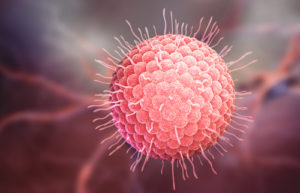Back to Main Page
 Genital herpes is a sexually transmitted disease that is caused by the herpes simplex virus (HSV). Genital herpes is a chronic (long-term) condition. It is a highly contagious virus with the most affected being aged 20-24 years. It causes painful blisters on the genitals and the surrounding areas. HSV can affect any mucous membrane (moist lining), such as those found in the mouth (cold sores).
Genital herpes is a sexually transmitted disease that is caused by the herpes simplex virus (HSV). Genital herpes is a chronic (long-term) condition. It is a highly contagious virus with the most affected being aged 20-24 years. It causes painful blisters on the genitals and the surrounding areas. HSV can affect any mucous membrane (moist lining), such as those found in the mouth (cold sores).
The virus remains in your body and can become active again. The average rate of recurrence is four to five times in the first two years after being infected. However, over time, it tends to become active less frequently and each outbreak becomes less severe.
The Herpes Simplex Virus (HSV)
There are two types of herpes simplex virus (HSV), type 1 and type 2. Both types are highly contagious and can be passed easily from one person to another by direct contact.
Genital herpes is usually transmitted by having sex (vaginal, anal or oral) with an infected person. Even if someone with genital herpes doesn’t have any symptoms, it’s possible for them to pass the condition on to a sexual partner.
At least 8 out of 10 people who carry the virus are unaware they have been infected because there are often few or no initial symptoms. However, certain triggers can activate the virus, causing an outbreak of genital herpes.
How is it passed on?
- Unprotected vagina, anal or oral sex
- Unprotected rimming (mouth to anus)
- From a pregnant mother to her baby
Symptoms
Most people don’t experience any symptoms of herpes when initially exposed to the virus. 8 out of 10 individuals who carry the virus show no symptoms and it may take years for symptoms to show. However if you do experience symptoms when initially infected, they generally occur between 4-7 days after you have been exposed to the virus.
This is called a primary infection and the following are symptoms of a primary infection of herpes;
- Painful red blisters that burst and leave sores open in the area of genitals, anus, thighs, buttocks
- Burning sensation passing urine
- Blisters & ulcers on the cervix in women
- A high temperature of 38C or over
- Vaginal discharge
- Feeling unwell with aches and pains (NHS, 2017)
Recurrent infections of genital herpes symptoms may include the following;
- A tingling, burning or itching sensation in the genital area and/or legs prior to the blisters appearing.
- Painful blisters that burst and leave sores in the genitals, rectum, thighs and buttocks.
- Blisters and ulcers on the cervix in females.
Treatment & Prevention
Although there is no cure for genital herpes, prescribed medication can reduce discomfort during an outbreak. The virus will stay in your system, so there may be further outbreaks (NHS, 2017). Ways to prevent contracting the virus are;
- Avoid intimate sexual contact especially if your partner has an out break
- Always use a condom
For more information on genital herpes, click on any of the following links;